Essential Guide to Fire Risk Assessment for Landlords in London
Ensuring fire safety in rental properties is a critical responsibility for landlords, especially given the stringent legal framework enforced across London. A comprehensive fire risk assessment is essential not only to protect tenants and property but also to comply with UK fire safety legislation. This detailed guide covers the laws, processes, certification requirements, council mandates, and pricing of fire risk assessments for landlords in 2025, helping them maintain safe and compliant living environments.
Understanding the Legal Requirements for Fire Risk Assessments
The primary legislation governing fire safety assessments in residential and commercial rental properties is the Regulatory Reform (Fire Safety) Order 2005, which places the responsibility for fire safety on the “responsible person”—typically the landlord or property manager.
Key legal obligations include:
- Conducting a thorough fire risk assessment that identifies potential hazards and evaluates risks to occupants.
- Implementing practical fire safety measures to reduce or eliminate risk.
- Recording all findings and actions taken during the assessment as required by the Fire Safety Act 2021.
- Reviewing and updating the assessment regularly, especially after significant changes to the property or tenancy.
- Ensuring compliance with related regulations such as the Housing Act 2004 and Building Safety Act 2022, which cover broader housing health and safety standards.
For properties classified as Houses in Multiple Occupation (HMOs) or buildings with common areas (flats or apartments), fire risk assessments are mandatory and closely scrutinized by local councils.
The Fire Risk Assessment Process Explained
A fire risk assessment is a systematic evaluation aimed at:
- Identifying potential sources of ignition, fuel, and oxygen that can contribute to a fire.
- Recognizing people who may be at risk, such as tenants, visitors, or maintenance personnel.
- Evaluating current fire prevention, detection, and evacuation procedures.
- Recommending remedial actions or improvements, such as upgrading fire alarms, improving escape routes, installing emergency lighting, or providing fire extinguishers.
Landlords can engage qualified fire risk assessors—often accredited by recognised bodies such as the Institute of Fire Safety Managers (IFSM)—to carry out the inspection and provide a detailed report. These professionals typically:
- Conduct an on-site inspection covering all areas including communal spaces, escape routes, and fire safety equipment.
- Identify hazards and assess fire safety systems and tenant behaviours.
- Issue a comprehensive report with actionable recommendations and compliance status.
- Advise on frequency of reviews, generally recommending annual reassessments or more frequent assessments if risk factors increase.
Council Requirements and Enforcement in London
London borough councils strictly enforce fire safety regulations through property licensing schemes, particularly targeting HMOs and selective licensing zones. Council requirements typically involve:
- Submission of valid fire risk assessment reports as part of HMO and rental property licensing applications or renewals.
- Regular inspections to ensure ongoing compliance with fire safety standards.
- Mandating installation of smoke alarms, carbon monoxide detectors, and fire doors in line with the Smoke and Carbon Monoxide Alarm (Amendment) Regulations 2022.
- Enforcement actions, including fines and license revocations, against landlords who fail to comply with fire safety laws.
Landlords should consult their local borough council websites and liaise with housing officers to ensure all fire safety obligations are met.
Pricing Overview of Fire Risk Assessments in London
The cost of commissioning a fire risk assessment can vary significantly depending on the property’s size, type, and complexity of the fire safety systems in place. Typical pricing bands for 2025 include:
- Standard residential properties: £80 to £150
- Houses in Multiple Occupation (HMOs): £150 to £300
- Commercial or larger mixed-use properties: bespoke quotes depending on scope
Some service providers bundle fire risk assessments with other landlord compliance certificates such as gas safety and electrical safety, offering competitive packages. Quick turnaround and online booking options add convenience to landlords’ compliance management.
Benefits of Professional Fire Risk Assessment Services
Outsourcing fire risk assessments to qualified specialists provides numerous advantages:
- Ensures legal compliance and reduces risk of enforcement penalties.
- Provides tenants with a safer living environment, enhancing landlord reputation.
- Identifies actionable fire risk improvements before incidents occur.
- Offers expert advice tailored to London’s complex regulatory landscape.
- Facilitates documentation and record-keeping essential for audits and licensing.
Partnering with trusted providers increases certainty and peace of mind for landlords managing multiple properties.
Booking Your Fire Risk Assessment Service
For landlords looking to ensure full fire safety compliance, booking a fire risk assessment with a professional service provider is a proactive step. Experienced assessors deliver thorough inspections and detailed reports promptly, helping landlords meet council and legislative requirements with ease.
With a knowledgeable provider like Landlords Checks, landlords can access reliable fire risk assessment services tailored for London’s rental market. Visit fire risk assessment to arrange inspections and expert advice helping you maintain tenant safety and compliance.

Talk To Us!
Have Questions? Call Us Today for Expert Advice & Instant Assistance.
020 8609 7777
Booking assistance & Support

Fire Risk Assessment

Gas Safety Certificate
Gas Safety Certificate – Domestic – Meter & Upto 2 appliances
£57.99 Book NowGas Safety Certificate – Domestic – Meter & Upto 4 appliances
£77.99 Book NowCarbon Monoxide Alarm
£80 Book NowGas Safety Certificate – Domestic – “Discounted Offer” Boiler Service + Gas Certificate & 2 appliances
£89.99 Book NowGas Safety Certificate – Commercial – 1 appliance
£199 Book NowGas Safety Certificate – Commercial – 2 appliances
£245 Book NowGas Safety Certificate – Commercial – Boiler Service
£280 Book Now

Electric Safety
Studio Appartments Electrical Safety Certificate (EICR)
£65 Book NowPAT Testing Up To 10 Items
£58 Book NowDomestic Electrical Safety Certificate EICR 1 – 3 Bedroom – 1 Consumer Unit Up to 12 Circuits
£99 Book NowDomestic Electrical Safety Certificate EICR 4 Bedrooms – 1 Consumer Unit Up to 12 Circuits
£120 Book NowCommercial Electrical Certificate (EICR) – 1 Consumer Unit Up to 12 Circuits
£149 Book NowDomestic Electrical Safety Certificate EICR 5 Bedrooms – 1 Consumer Unit Up to 12 Circuits
£150 Book NowDomestic Electrical Safety Certificate EICR 6 Bedrooms – 1 Consumer Unit Up to 12 Circuits
£158.33 Book NowFuse Box Installation
£415.83 Book Now

Energy Performance

Inventory Services

Asbestos Surveys

Electric-Gas Appliances & Hob Installations

Talk To Us!
Get in touch if you're uncertain or need assistance ?
020 8609 7777
Talk to a Friendly Advisor
Accreditations
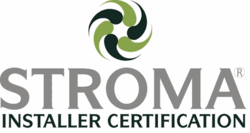
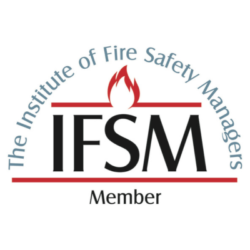
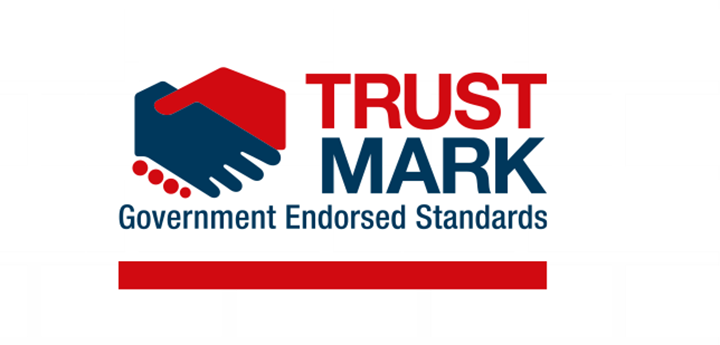
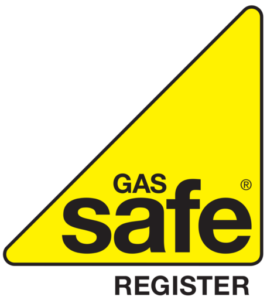
Help & Advice
-
Fire Risk Assessment in HMOs Legal Essentials for Landlords
As the landscape of rental housing evolves, Houses in Multiple Occupation (HMOs) carry unique challenges and risks, especially when it comes to fire safety. The legal framework governing fire risk
-
EICR for Landlords A Complete 2025 Compliance Guide
What Is an EICR?An Electrical Installation Condition Report (EICR) assesses the safety of a property’s wiring and fixed electrical systems. It helps ensure that your property is safe and legally
-
Energy performance certificate – What Has Changed & Why Your Property Must Be EPC C or Better
The Energy Performance Certificate (EPC) rules for UK rentals are tightening, so landlords need to be aware of how and when to upgrade.What Is an EPC?An EPC grades a property’s
-
Gas Safety Certificates & Tenant Rights
Gas safety compliance is a fundamental legal responsibility for landlords across the UK, ensuring tenant safety in homes with gas appliances. All landlords must arrange a professional gas safety check on all gas appliances, fittings, and flues in their rental properties annually, performed exclusively by Gas
-
A Comprehensive Price Guide for Landlords in London: Fire Risk Assessment, Gas Safety Certificate, EICR, and Energy Performance Certificate
Introduction to Rental Compliance in LondonIn London, landlords are entrusted with the pivotal responsibility of ensuring that their rental properties meet a series of legal obligations designed to protect tenant
-
 Fire Risk Assessment in HMOs Legal Essentials for Landlords
Fire Risk Assessment in HMOs Legal Essentials for Landlords
-
 EICR for Landlords A Complete 2025 Compliance Guide
EICR for Landlords A Complete 2025 Compliance Guide
-
 Energy performance certificate – What Has Changed & Why Your Property Must Be EPC C or Better
Energy performance certificate – What Has Changed & Why Your Property Must Be EPC C or Better
-
 Gas Safety Certificates & Tenant Rights
Gas Safety Certificates & Tenant Rights
-
 A Comprehensive Price Guide for Landlords in London: Fire Risk Assessment, Gas Safety Certificate, EICR, and Energy Performance Certificate
A Comprehensive Price Guide for Landlords in London: Fire Risk Assessment, Gas Safety Certificate, EICR, and Energy Performance Certificate



